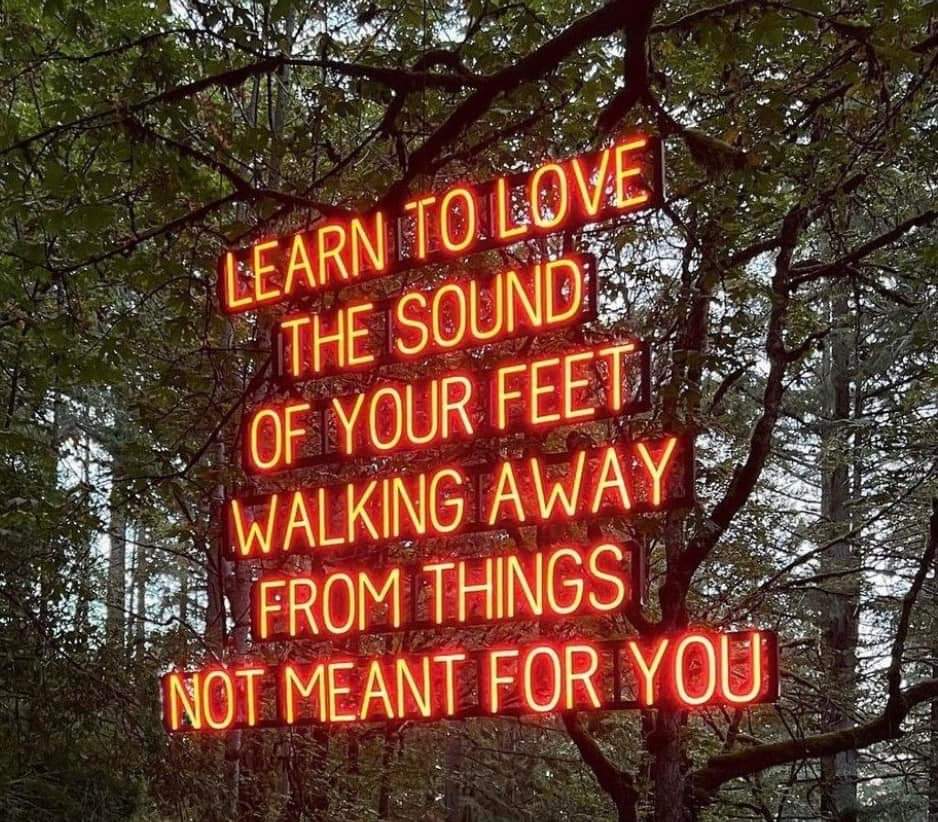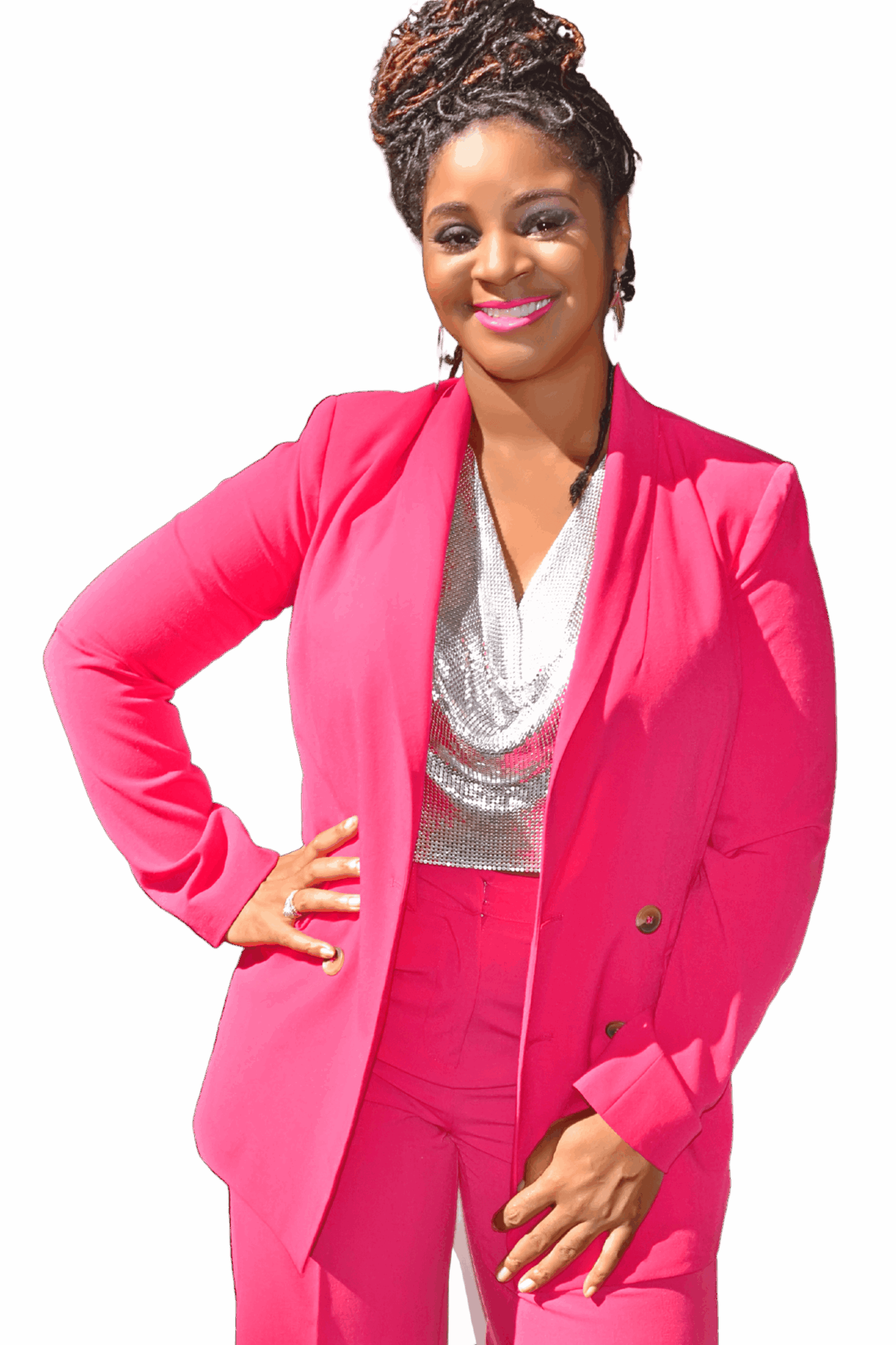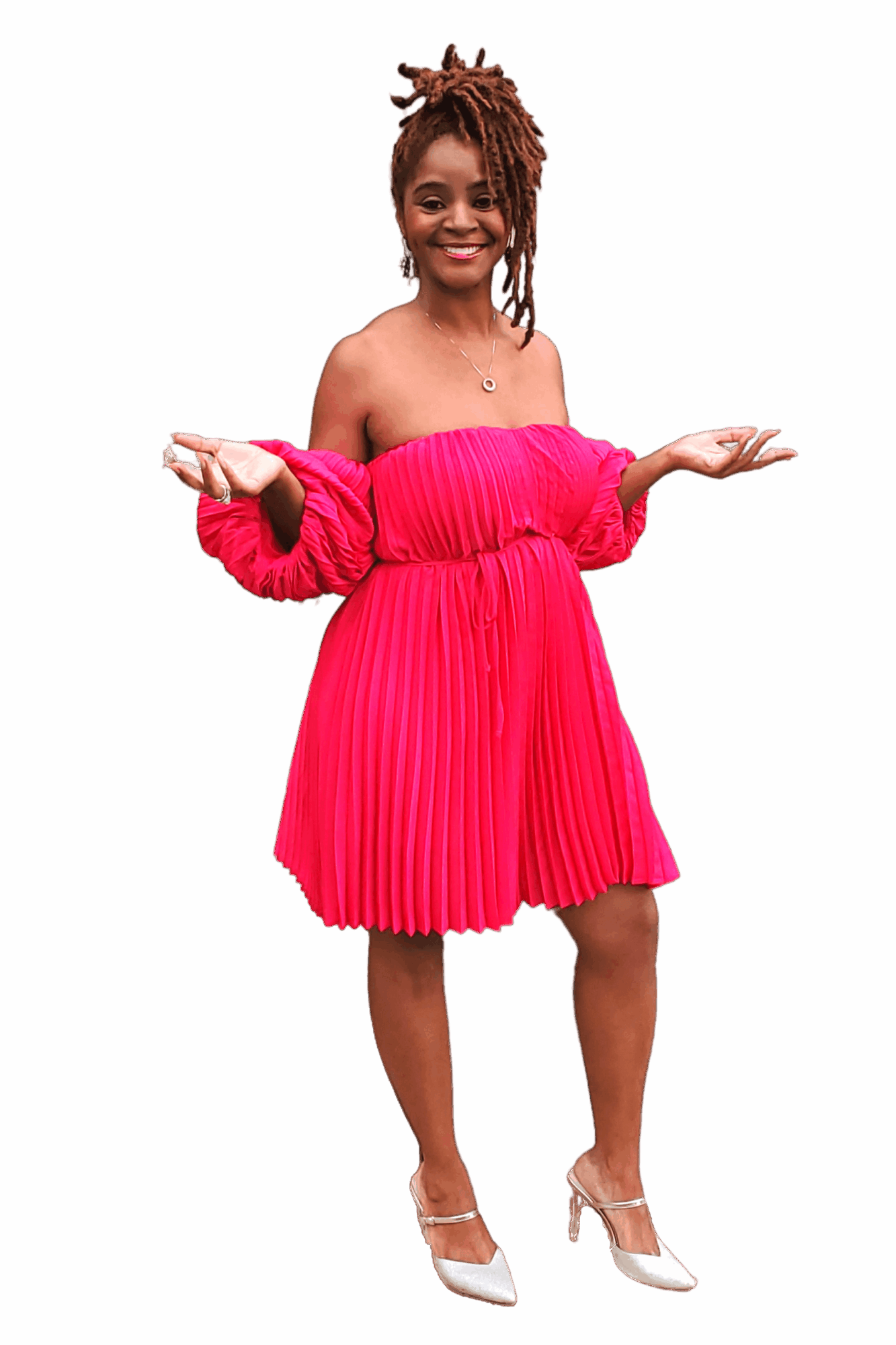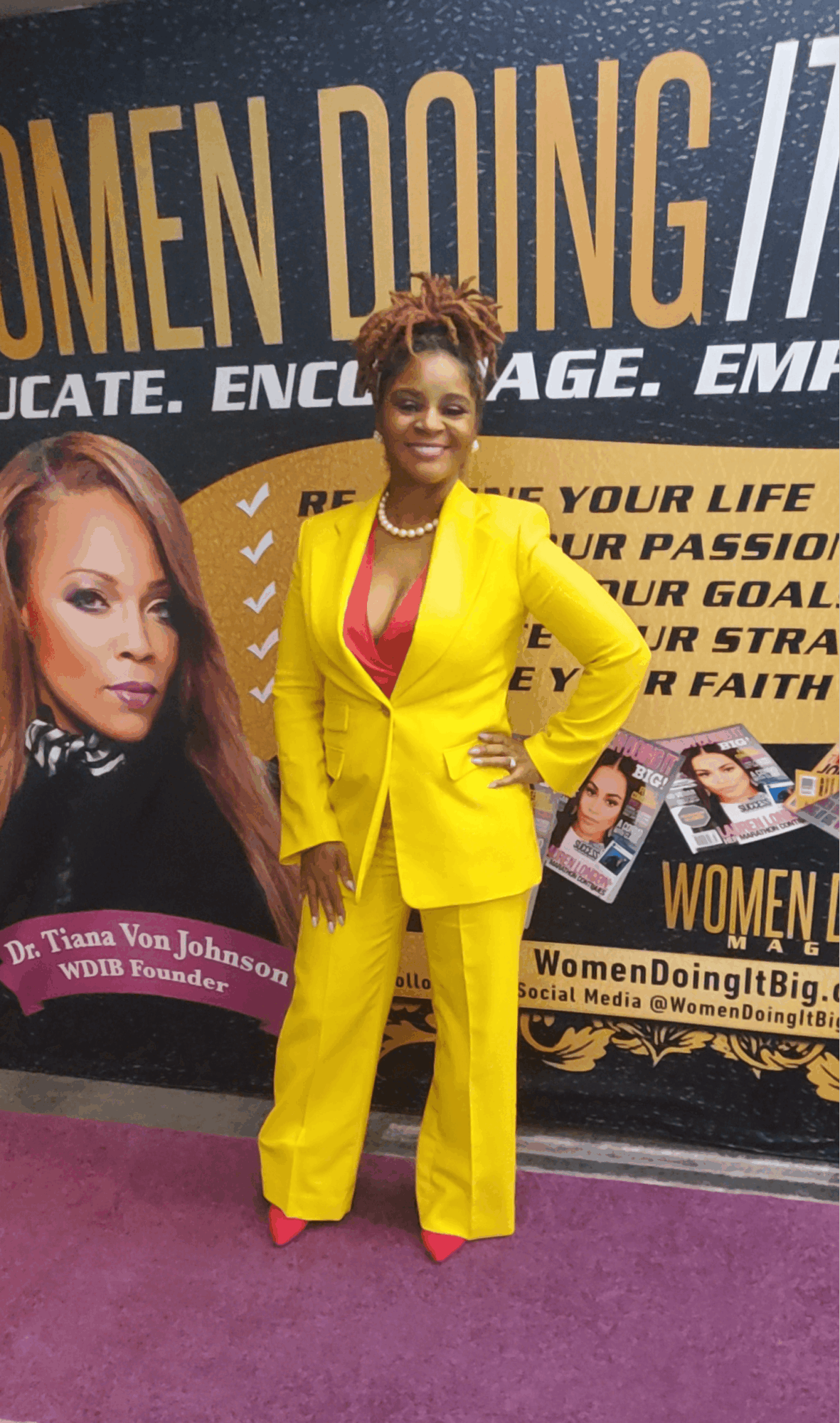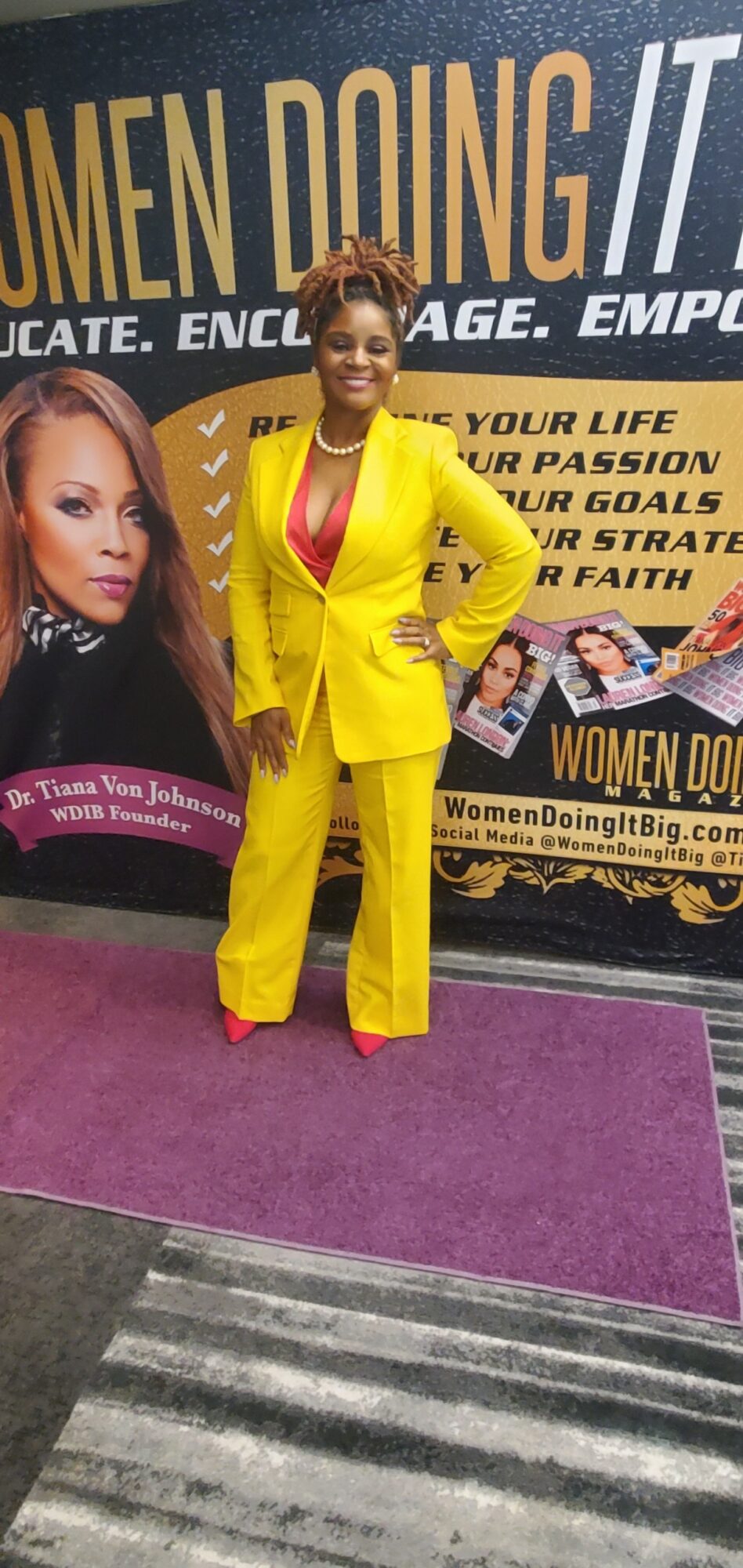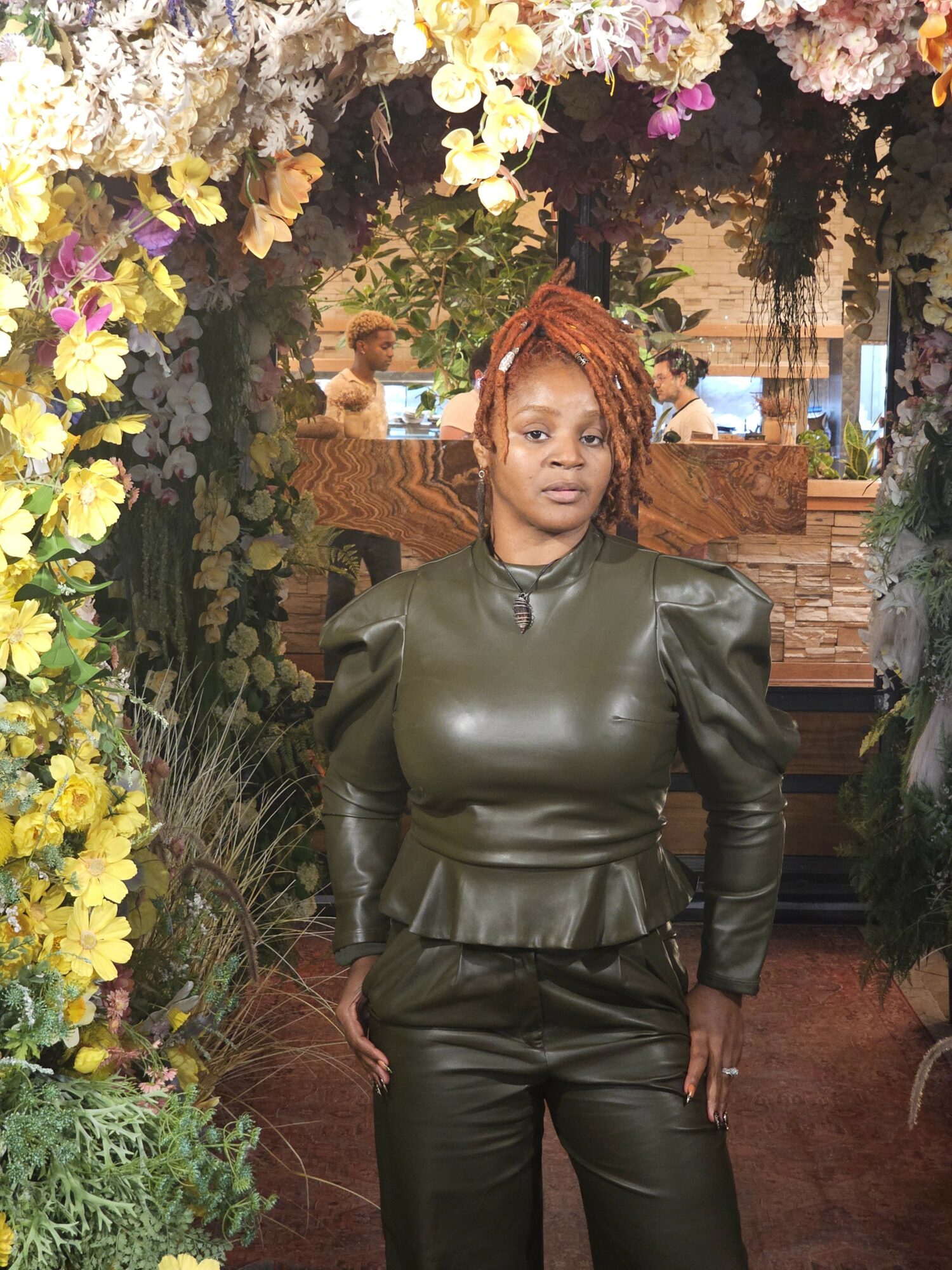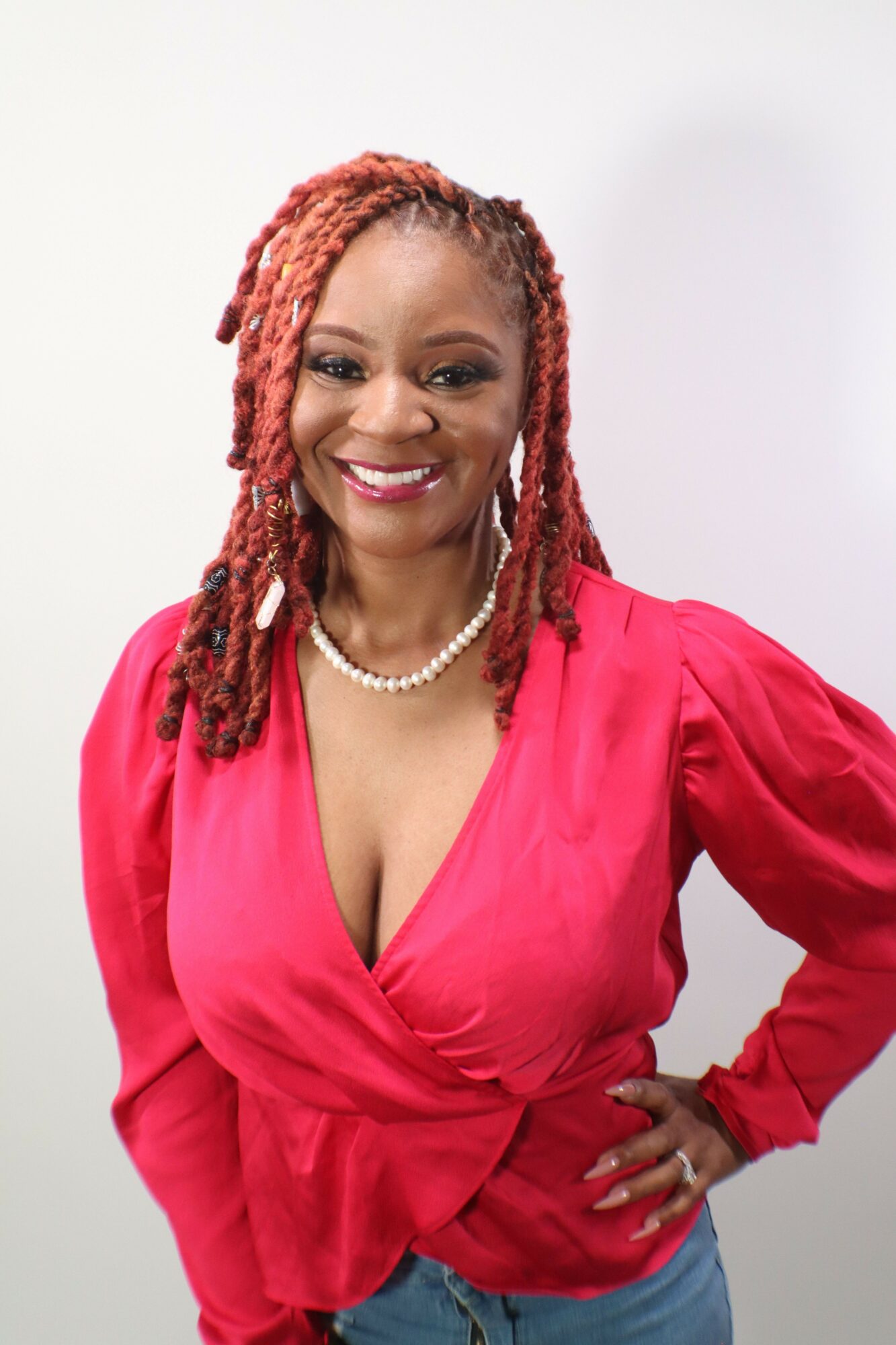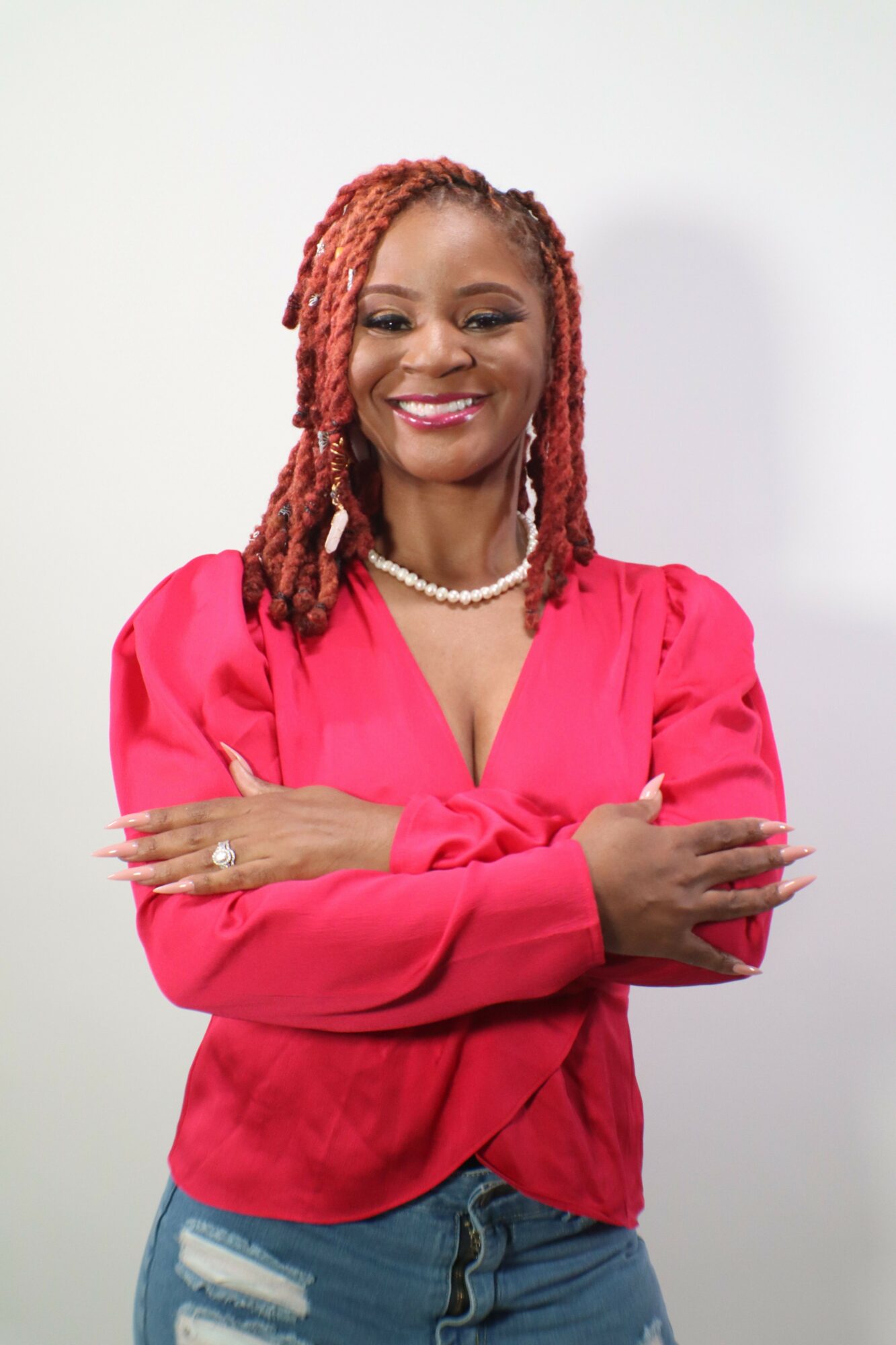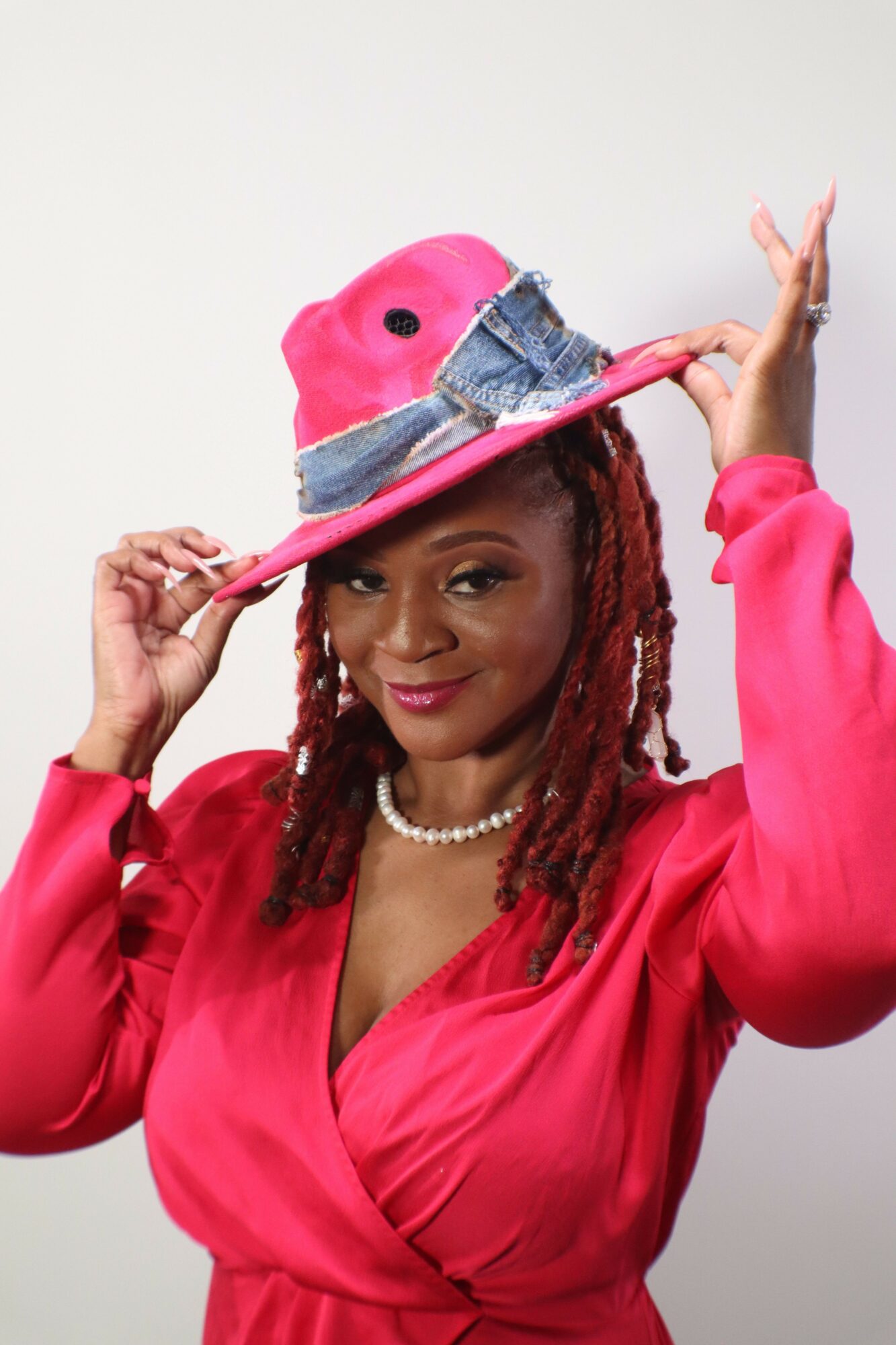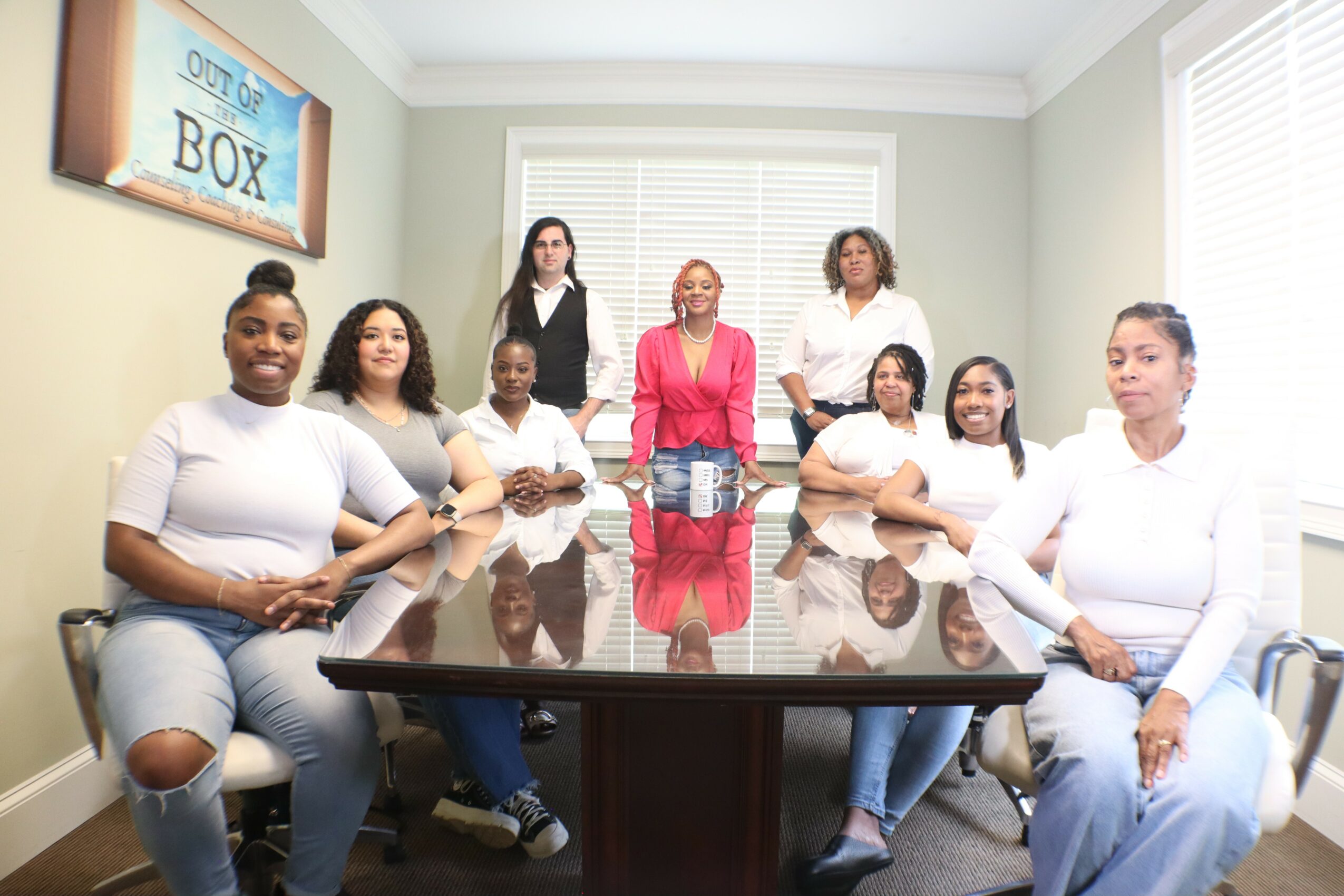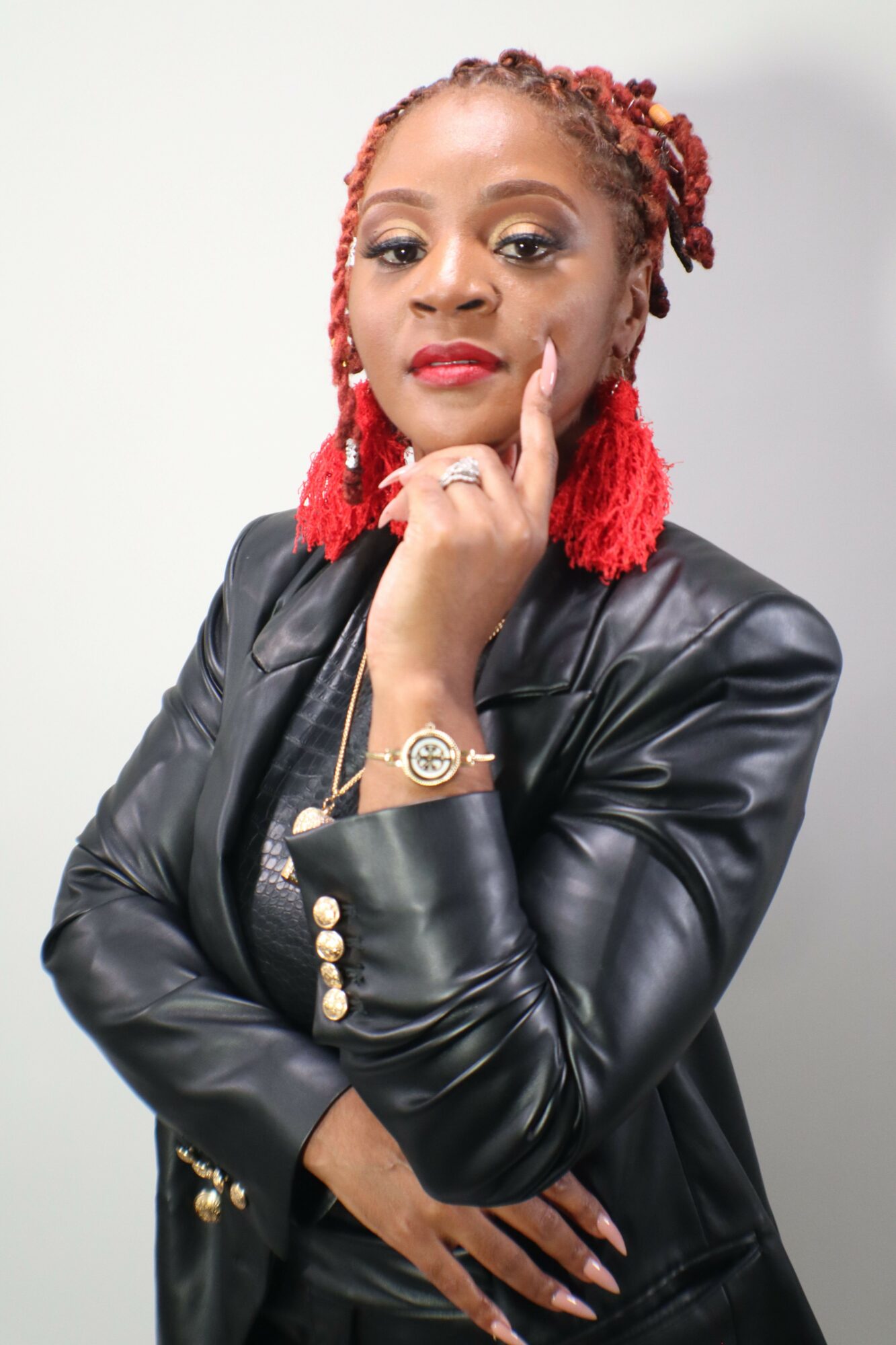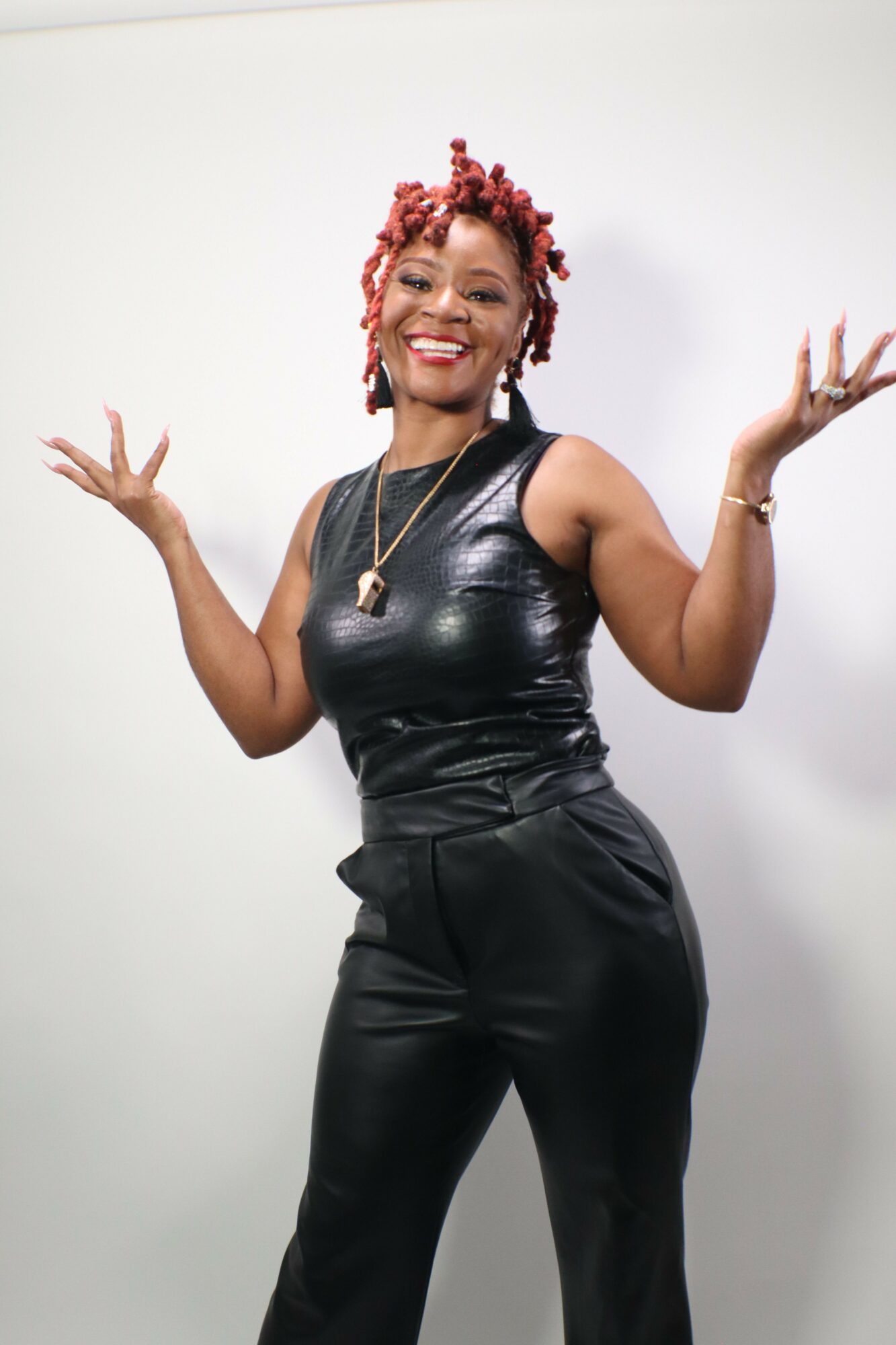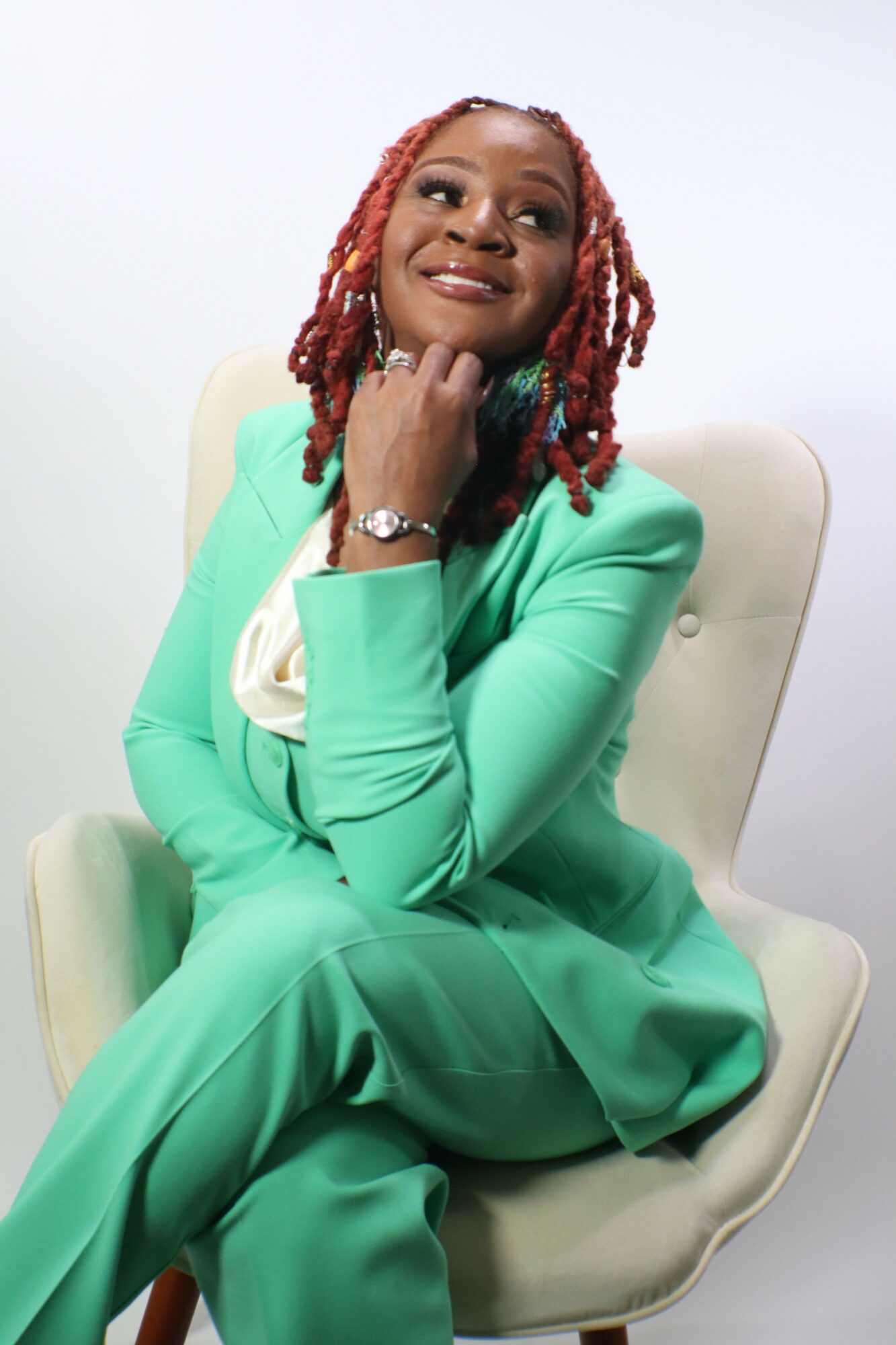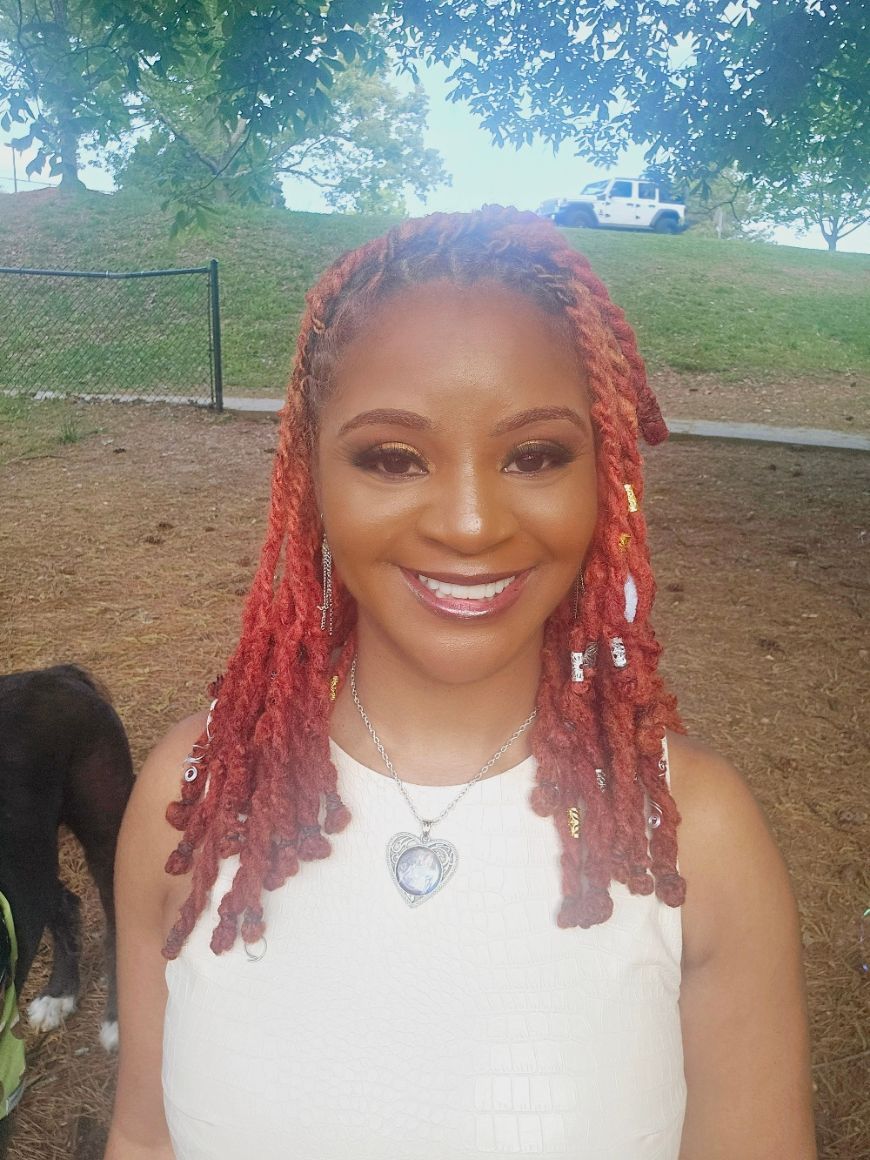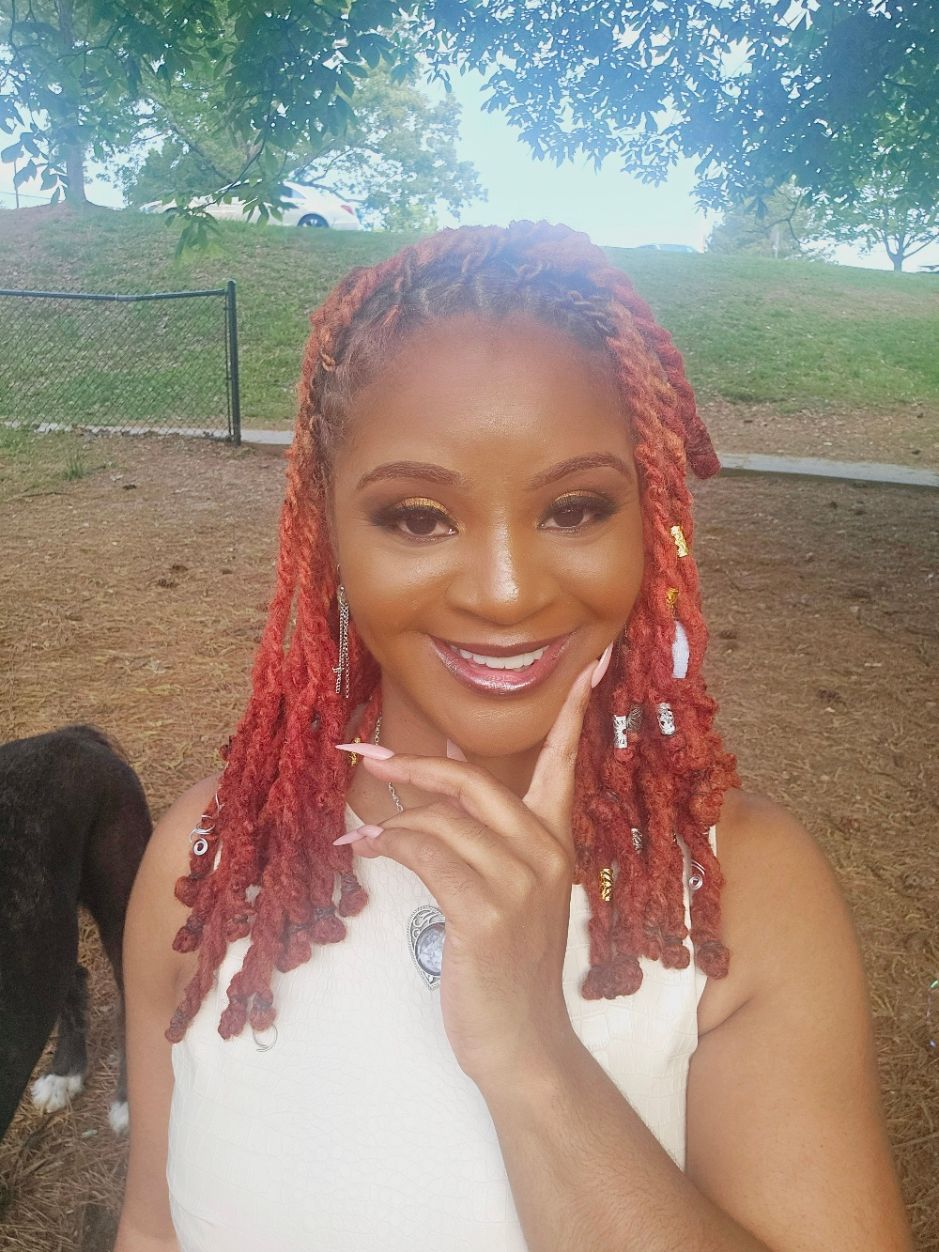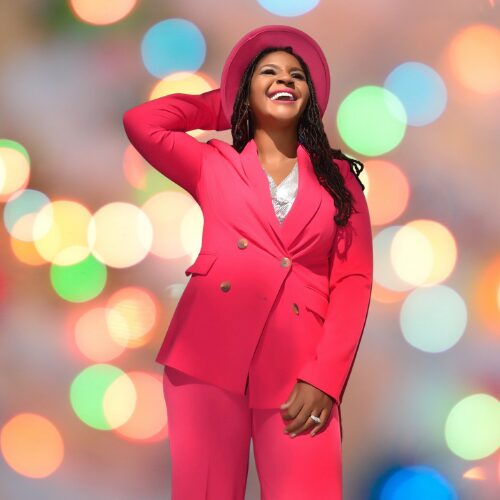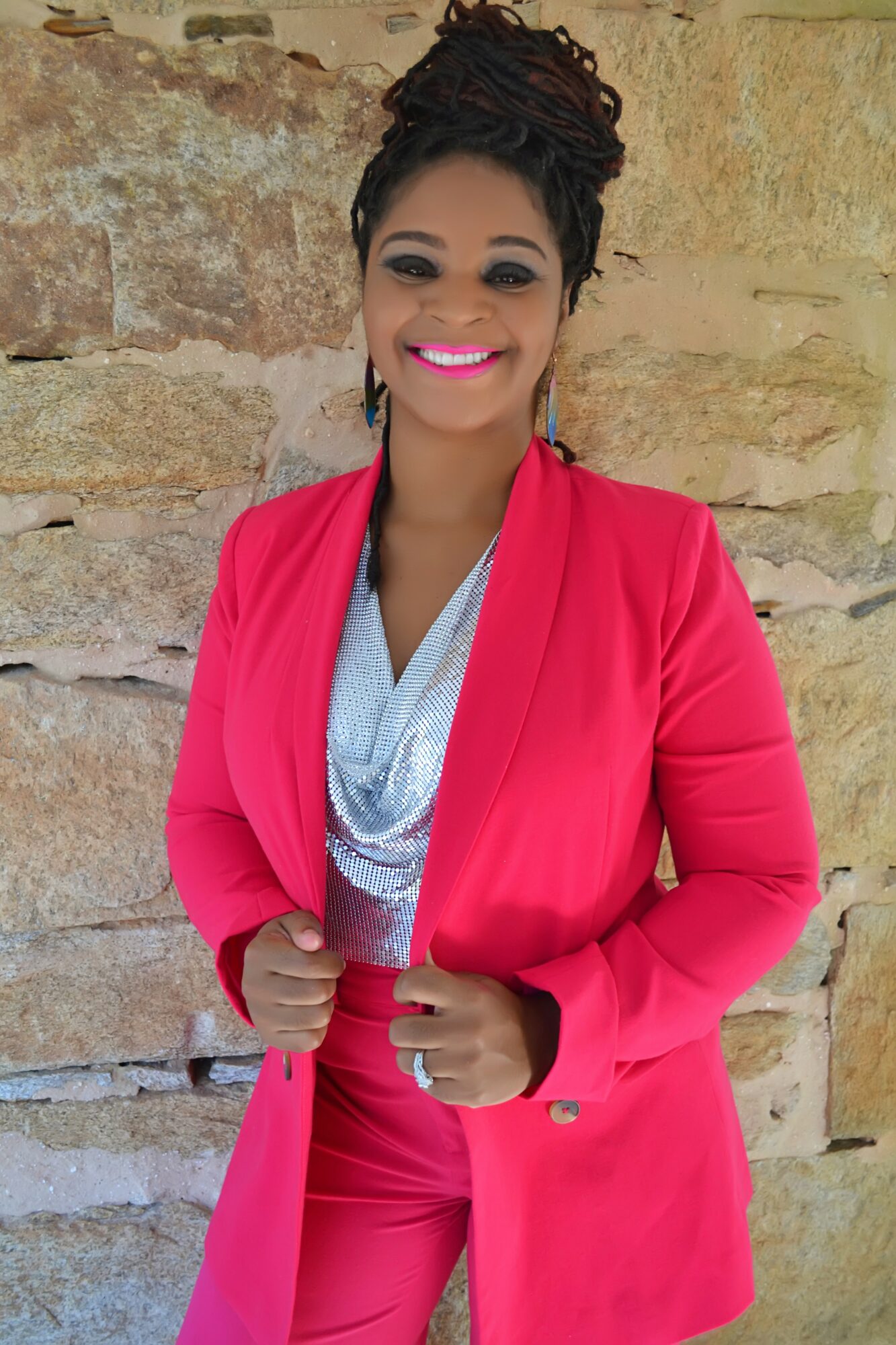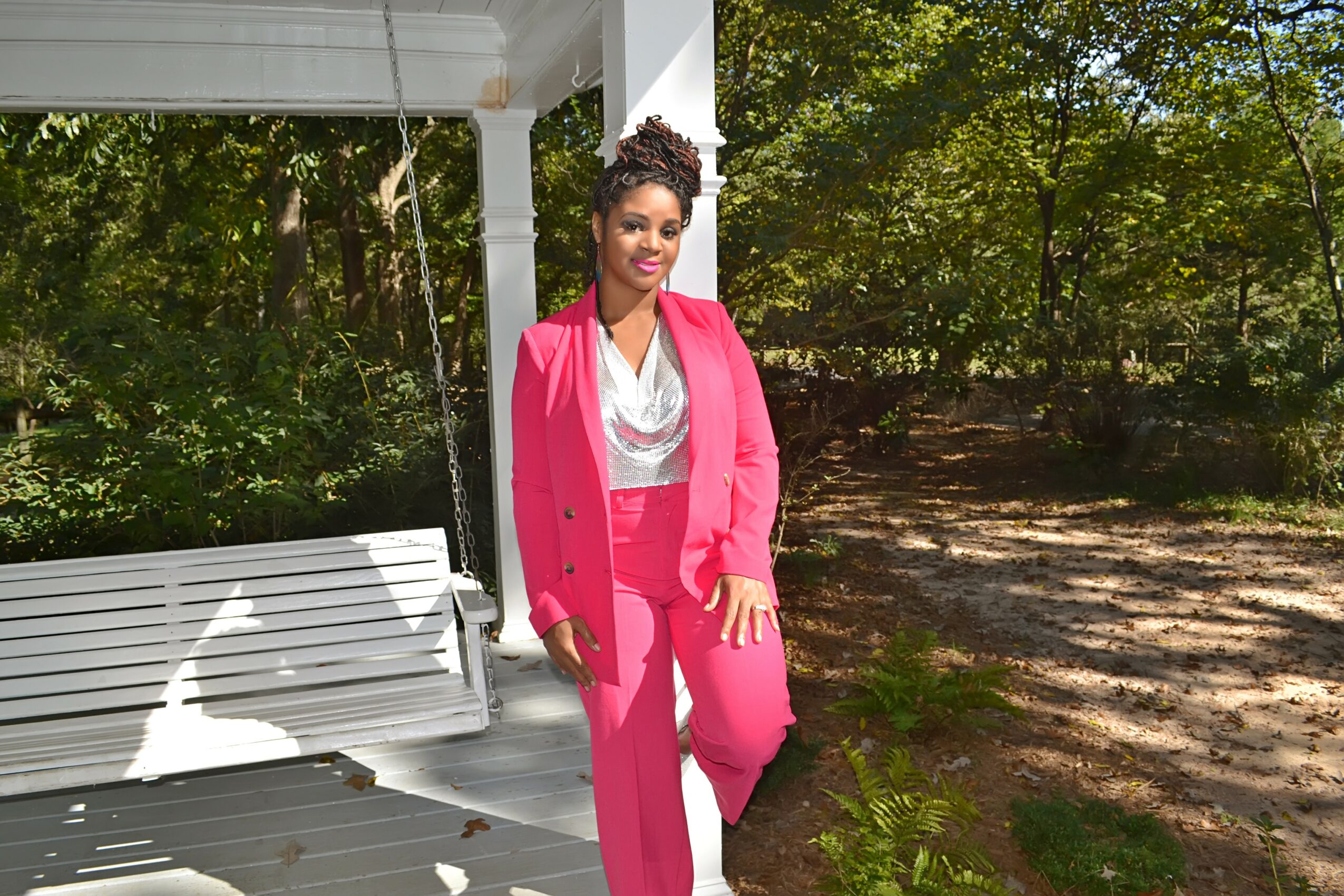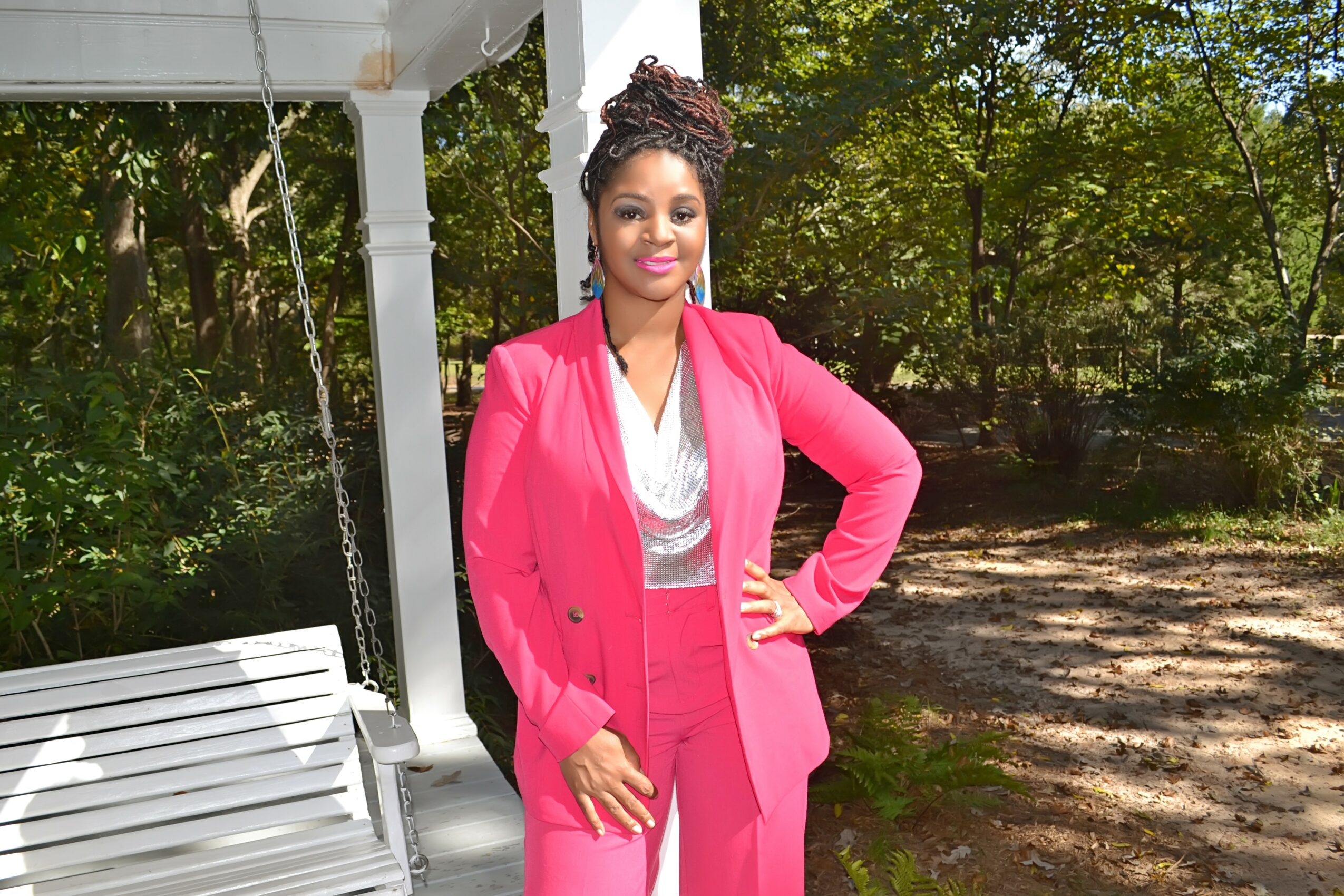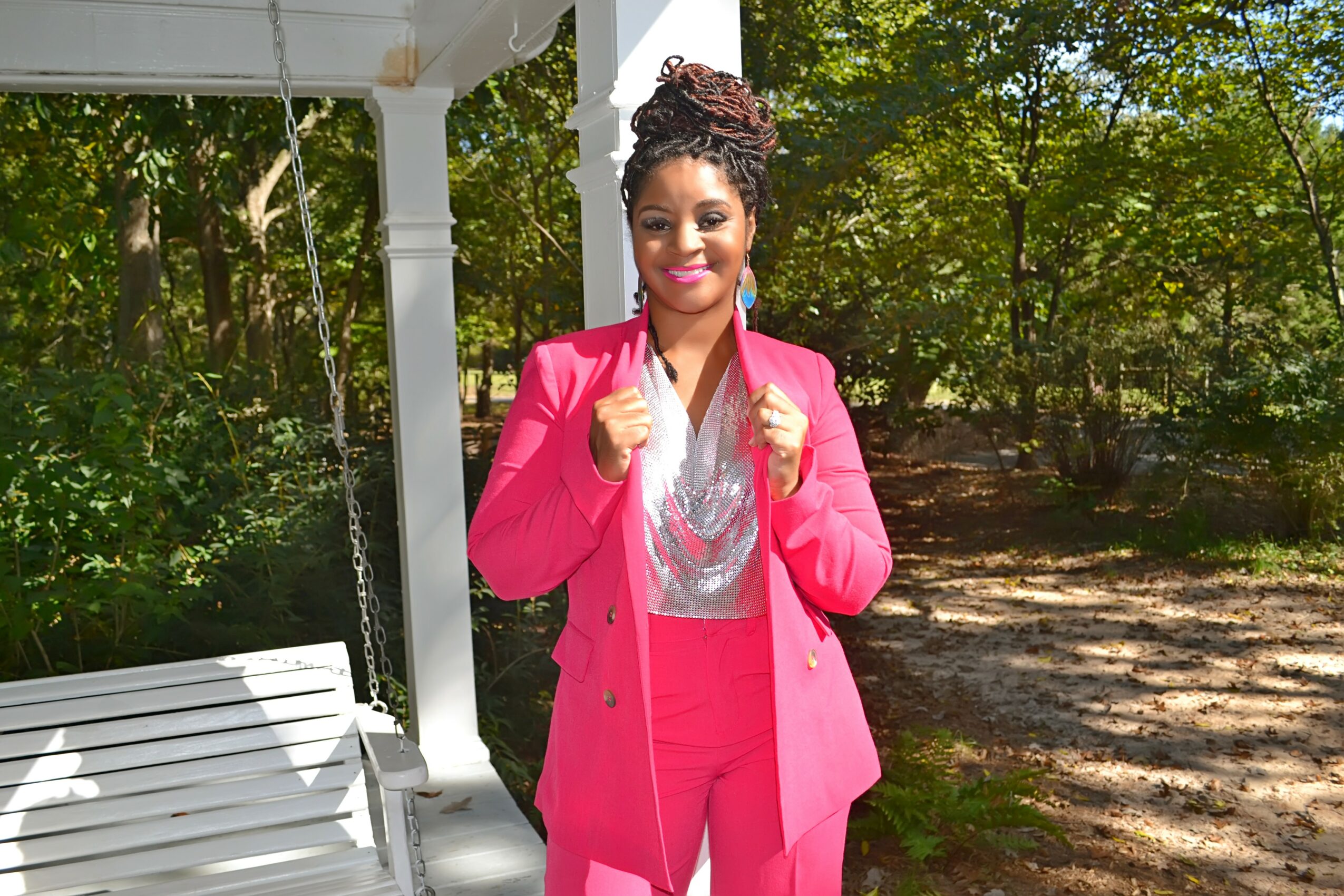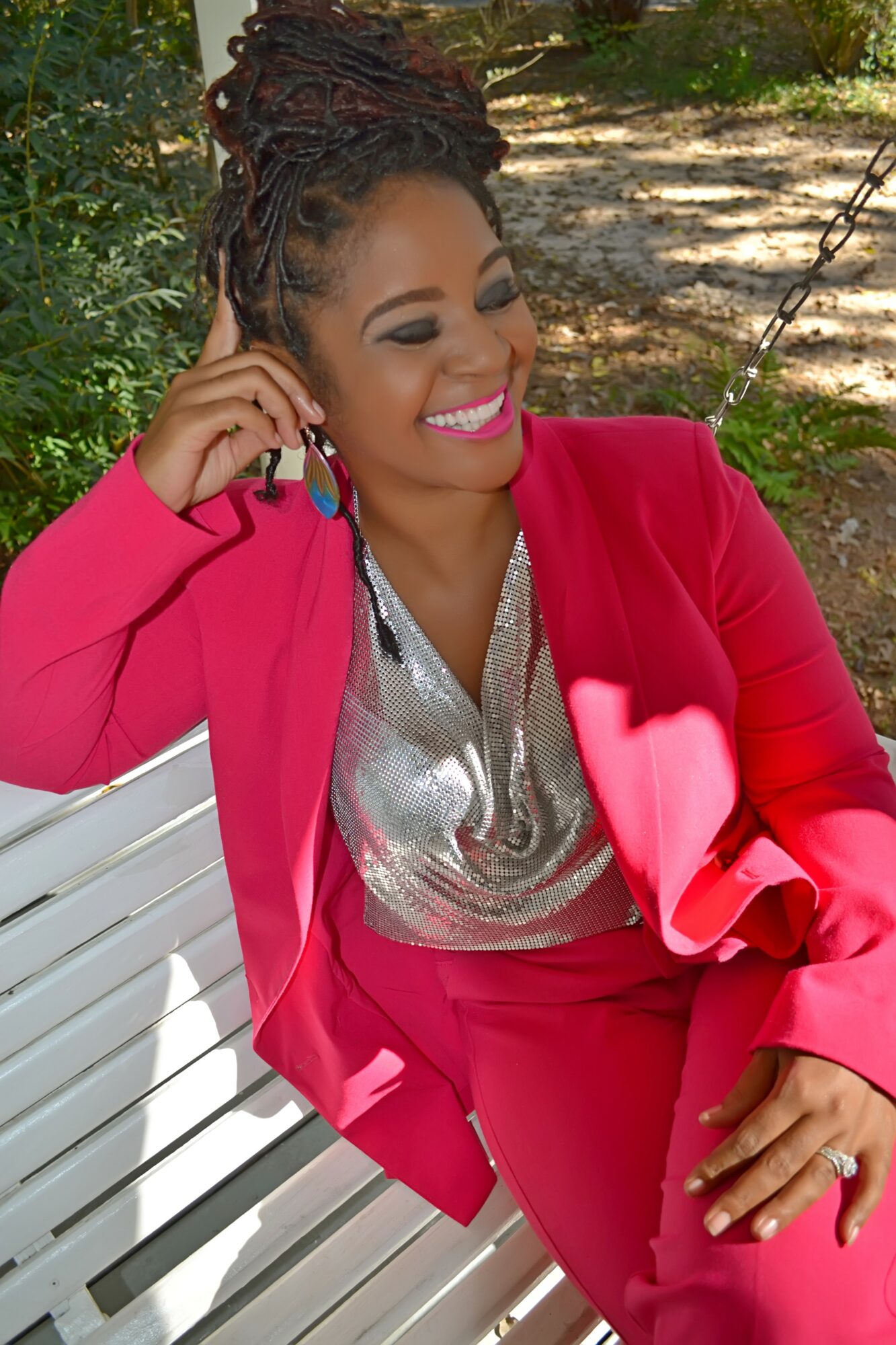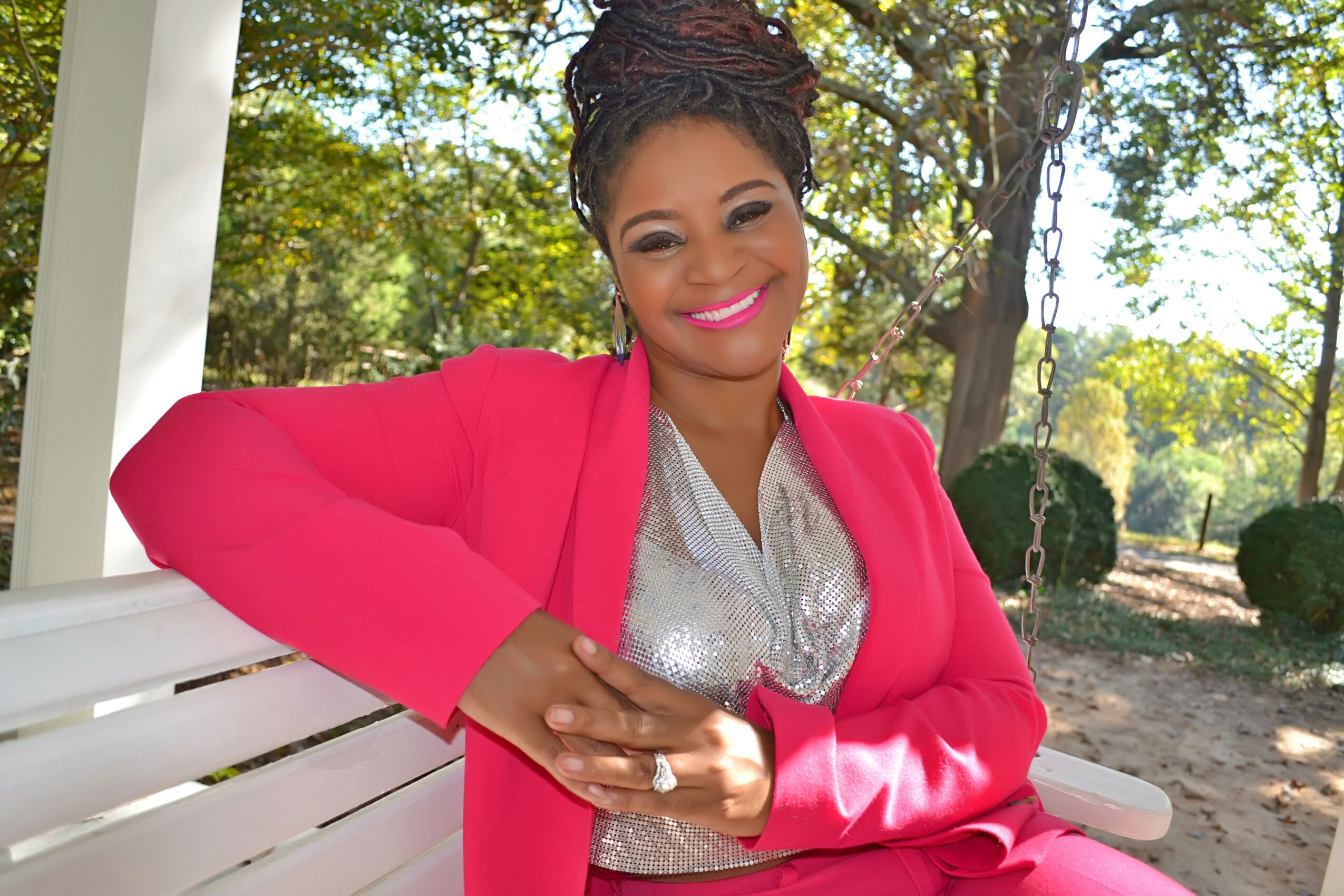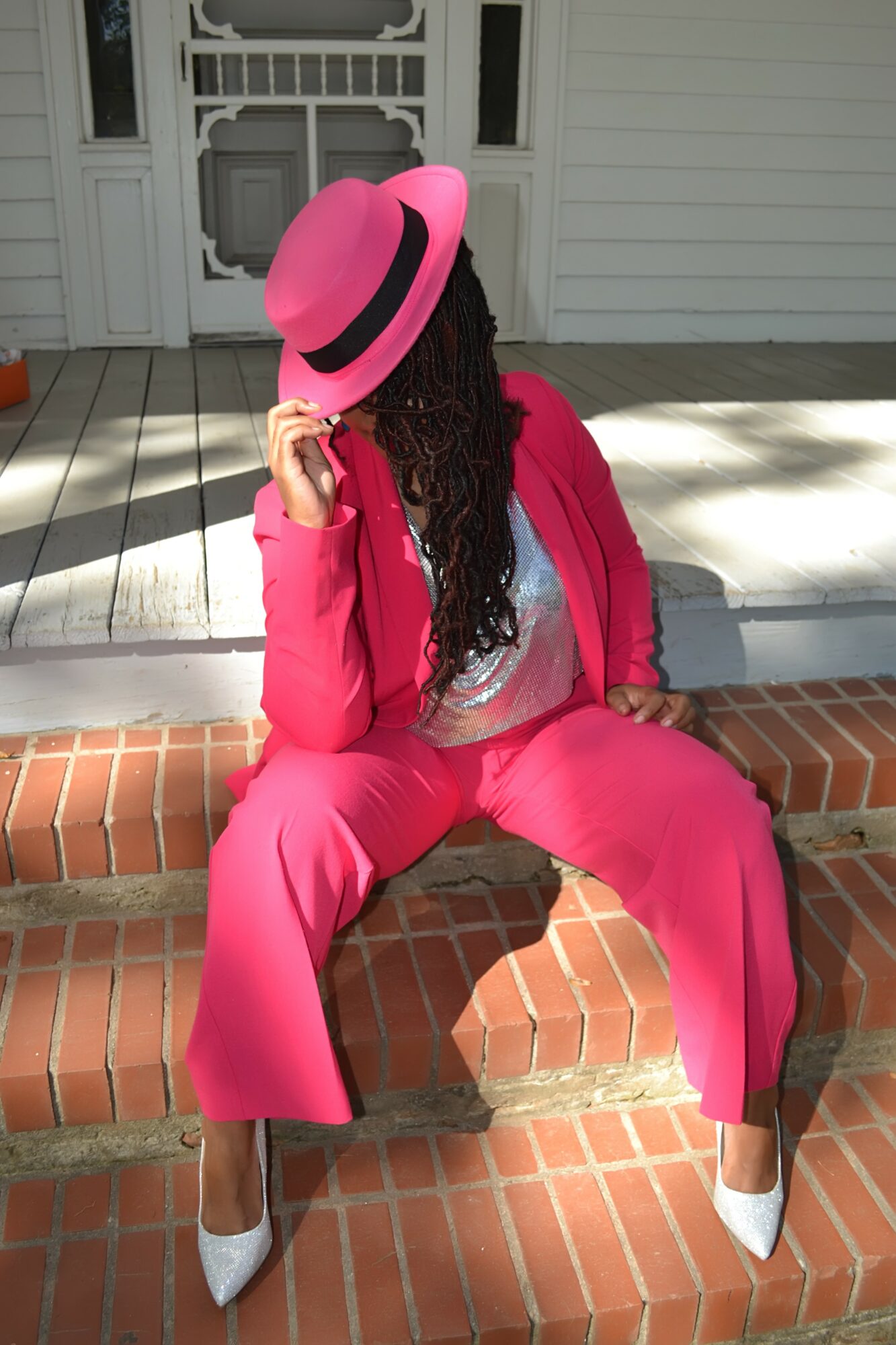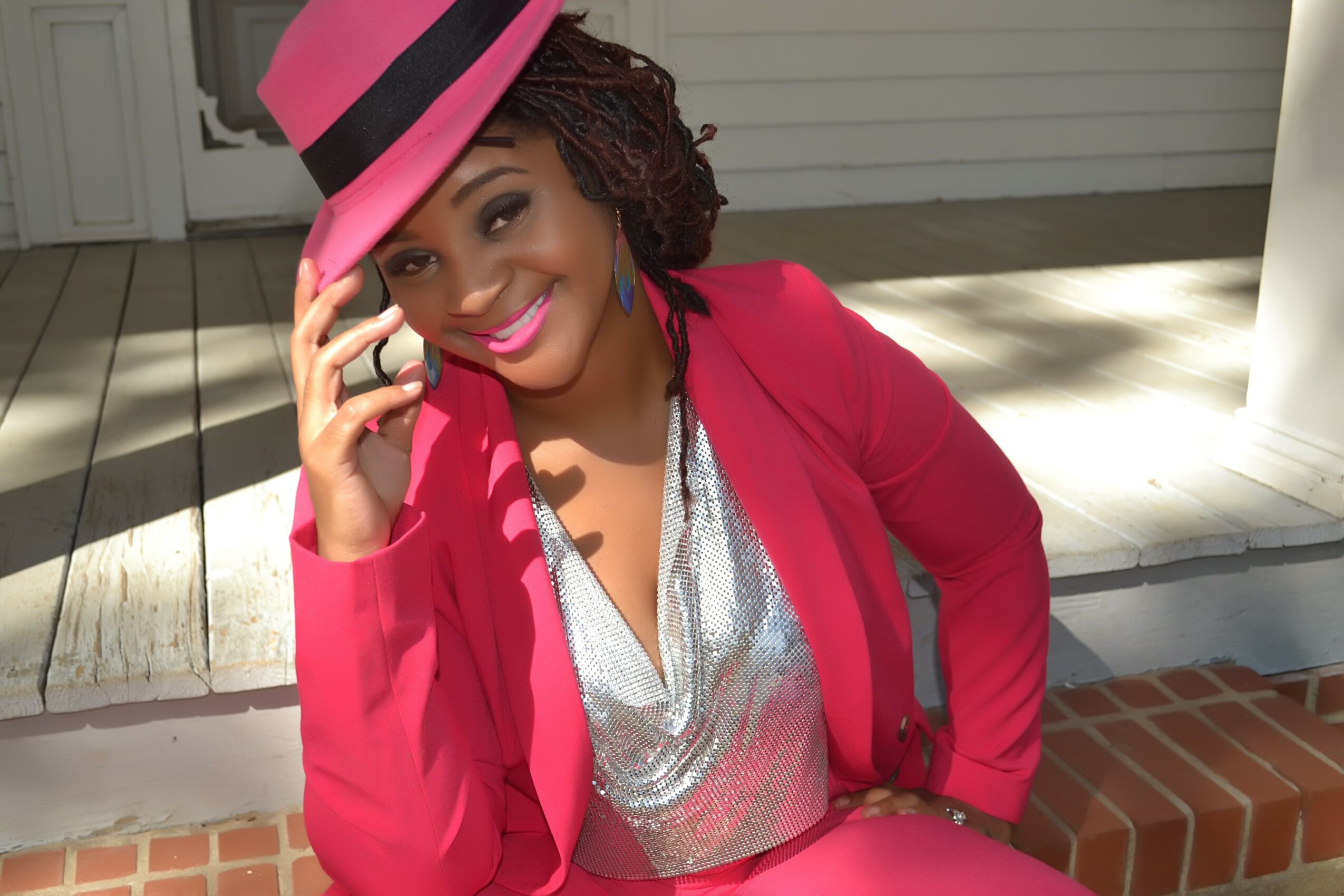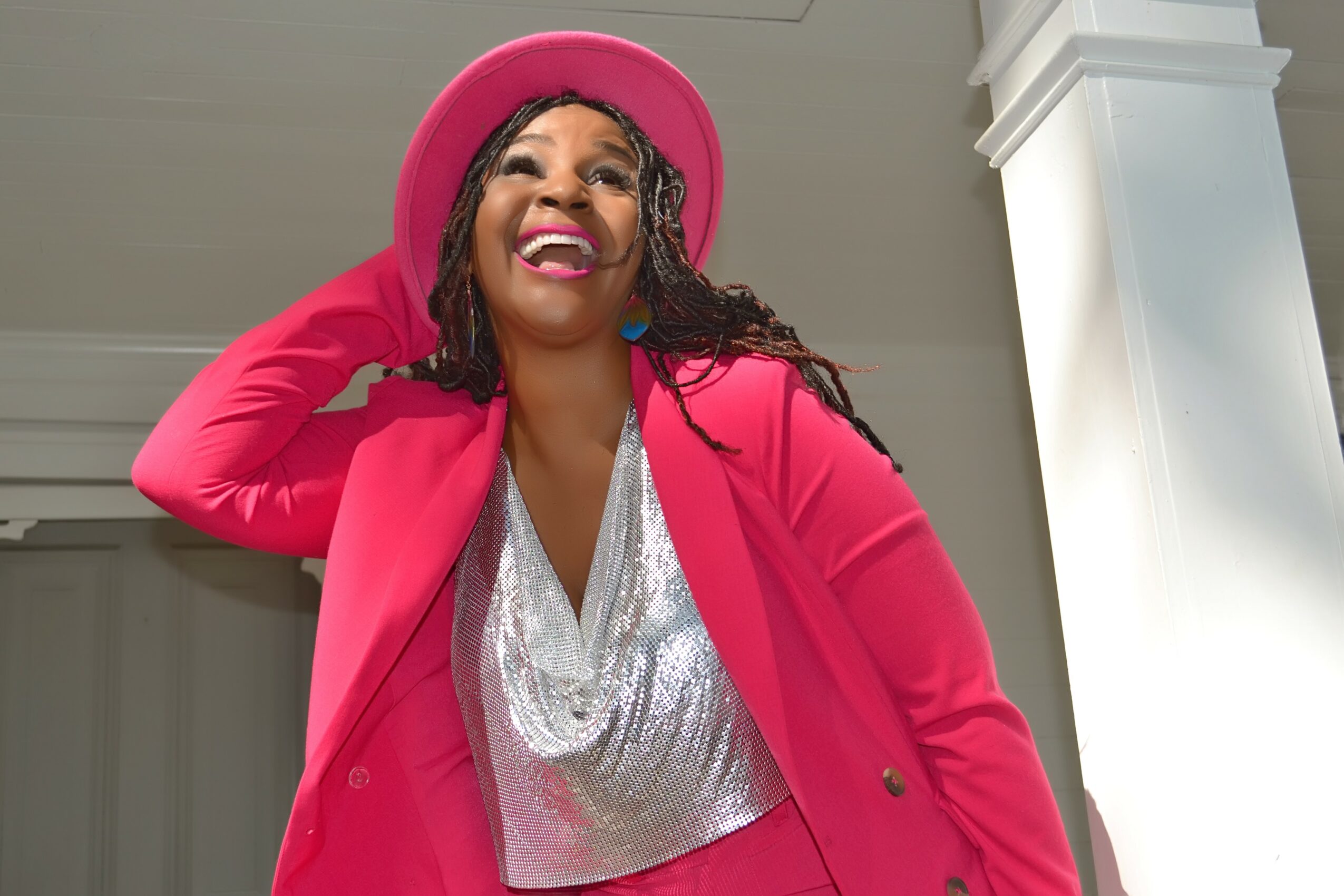

Dr. Oliva West shared their story and experiences with us recently and you can find our conversation below.
Good morning Oliva, we’re so happy to have you here with us and we’d love to explore your story and how you think about life and legacy and so much more. So let’s start with a question we often ask: What are you chasing, and what would happen if you stopped?
I’m chasing the vision of a world where every woman and girl of color has access to the mental health support, empowerment, and community she deserves. It’s a pursuit rooted in my journey from the Navy to law enforcement, through international psychology work across continents, and now as the founder of ToGetHer Empowered, Inc. and Clinical Director of Out of the Box Counseling, Coaching, and Consulting.
What am I chasing specifically? Global equity in mental health and empowerment. I’m building bridges between clinical excellence and cultural competency, creating spaces where trauma survivors can heal, where professionals can scale their impact internationally, and where underrepresented communities find solidarity and transformation.
What would happen if I stopped?
The ripple effect would be profound. The 500+ women who’ve been part of this movement since our Black Ladies Inc. days would lose a hub of connection. The children I’ve worked with through play therapy, the families navigating trauma, the international mental health professionals I’m training to scale their practices—they’d lose access to culturally competent care that truly sees them.
But here’s what drives me most: the next generation would lose a model of what’s possible. As someone who went from dyslexia to doctorate, from the streets influenced by my family’s Black Panther activism to international stages discussing trauma recovery and DEI—I represent proof that our past doesn’t define our ceiling.
If I stopped, the gap between clinical services and cultural reality would widen. The women filming their breakthroughs in our programs, the professionals learning to blend EMDR with Ubuntu philosophy, the little girls seeing themselves in “Anah’s Alphabet Adventure”—they’d lose a champion who understands that healing isn’t one-size-fits-all.
So I don’t stop. I pivot, I evolve, I expand—from therapy rooms in Duluth, Georgia to programs across Canada, Africa, and Europe. Because love, solidarity, and service aren’t just our core values; they’re the antidote to a world that often overlooks the mental health needs of those who look like me and the communities I serve.
Can you briefly introduce yourself and share what makes you or your brand unique?
Meet Dr. Olivia West (Dr. O): Where Global Impact Meets Transformative Healing
I’m Dr. Olivia West—Dr. O to my community—and I’ve built my life’s work at the intersection of trauma recovery, cultural competency, and global empowerment. As a Navy veteran, former law enforcement officer, and international psychologist with a Ph.D. in International Psychology, I’ve spent over a decade turning pain into power for underrepresented communities worldwide.
Two Brands, One Mission:
I’m the founder of ToGetHer Empowered, Inc., a nonprofit dedicated to uniting and empowering women and girls of color globally, and the Clinical Director of Out of the Box Counseling, Coaching, and Consulting (OOTB CCC), where we deliver culturally competent mental health services, training, and consulting that actually reflects the communities we serve.
What Makes This Work Different:
My approach isn’t textbook—it’s lived experience meeting clinical excellence. Growing up in Georgia with family ties to the Black Panther Party, serving my country, working the streets in law enforcement, then conducting research across Sierra Leone and South Africa—these experiences shaped a unique lens. I don’t just study trauma and diversity; I’ve navigated it, survived it, and now transform it.
At OOTB CCC, we serve individuals, families, and couples (ages 4+) using evidence-based modalities—EMDR, brainspotting, CBT, Gestalt therapy—blended with cultural frameworks like Ubuntu philosophy. We’re not just treating symptoms; we’re honoring ancestral wisdom while applying cutting-edge neuroscience.
The Global Footprint:
ToGetHer Empowered operates across four continents—North America, Africa, Europe, and beyond. What started as Black Ladies Inc. in 2011 with a handful of women has grown to 500+ members and evolved into a movement. We’re running 12-week trauma healing programs, launching a coaching academy, training international mental health professionals to scale their practices, and creating children’s books like “Anah’s Alphabet Adventure” that let little Black and brown girls see themselves as the heroes of their own stories.
What I’m Building Right Now:
I’m developing specialized programs—from play therapy training for parents and teachers to a $3K international course for mental health professionals ready to expand globally. I’m restarting my podcast, filming content everywhere from airports to African beaches to showcase what freedom and global impact actually look like for a Black woman psychologist. And I’m speaking on stages about everything from tech and AI in mental health to diversity in law enforcement to food insecurity’s impact on trauma.
The Bottom Line:
I went from dyslexia to doctorate. From systemic barriers to breaking them down for others. My brand isn’t about perfection—it’s about transformation, solidarity, and proving that when we center love and service, we can build empires that heal. Whether you find me as @dr.othedancingdoc on TikTok or in a therapy room in Duluth, Georgia, the mission is the same: advance equity, empower the underrepresented, and create spaces where healing isn’t a luxury—it’s a birthright.
That’s the work. That’s the movement. And we’re just getting started.
Appreciate your sharing that. Let’s talk about your life, growing up and some of topics and learnings around that. What did you believe about yourself as a child that you no longer believe?
As a child, I believed my dyslexia meant I wasn’t smart enough.
I watched other kids breeze through reading assignments while I struggled to make sense of letters that seemed to rearrange themselves on the page. I saw the frustration in teachers’ eyes, felt the weight of being called on and stumbling over words, experienced the shame of taking twice as long to complete what seemed effortless for everyone else.
The world’s message was clear: intelligence equals academic performance. And by that measure, I was failing.
I internalized it. Believed that my brain was broken, that I was somehow “less than,” that the dreams I had were probably too big for someone who couldn’t even read at grade level. I thought success belonged to people whose brains worked “normally”—and mine clearly didn’t.
Here’s what I know now that I didn’t know then:
My dyslexia wasn’t a deficit—it was teaching me different pathways to understanding. While I struggled with traditional academics, I was developing extraordinary emotional intelligence, pattern recognition in human behavior, and creative problem-solving skills that no textbook could teach. I was learning resilience, persistence, and how to advocate for myself in systems that weren’t built for me.
That “broken” brain? It became my greatest asset.
The same neurodivergence that made reading difficult made me exceptional at reading people. The struggle that seemed like a barrier became the foundation for my clinical intuition. The shame I carried became empathy for every client who’s ever felt “not enough” by society’s standards.
I went from dyslexia to doctorate—not despite my learning difference, but informed by it.
Now I understand: intelligence isn’t singular or standardized. The child who believed she wasn’t smart enough became Dr. Olivia West, Ph.D., international psychologist, founder of two organizations, someone who trains other mental health professionals and speaks on global stages.
What I believed then: “I’m not smart enough to succeed.”
What I know now: “I’m smart in ways the system wasn’t designed to measure—and that makes me dangerous in the best possible way.”
That limiting belief almost stopped me. Instead, it became fuel. Every program I create, every woman I empower, every professional I train—I’m proving that the world’s narrow definitions of intelligence and capability are lies designed to keep people like us small.
I’m not small. I never was. I just needed to grow into a truth bigger than the lie I was told.
What have been the defining wounds of your life—and how have you healed them?
The defining wounds of my life have been rooted in invisibility, systemic dismissal, and the exhaustion of constantly proving my humanity in spaces that weren’t designed for me.
Let me be specific, because these wounds aren’t abstract—they’re lived.
Wound #1: Academic Invisibility
Dyslexia in a system that equated reading speed with intelligence meant I was overlooked, underestimated, and often written off. Teachers saw struggle, not potential. The wound wasn’t just about letters on a page—it was about being made to feel fundamentally less than because my brain processed differently.
How I healed it: I pursued the very credentials the world said I couldn’t achieve. Navy service. Law enforcement. A Ph.D. in International Psychology. Marriage and Family Therapy training. Certifications in EMDR, brainspotting, hypnotherapy. But the real healing came when I stopped trying to prove myself to them and started building for us—creating Out of the Box Counseling, Coaching, and Consulting where neurodivergence isn’t pathologized, it’s honored.
Wound #2: Professional Erasure as a Black Woman
Serving in the Navy, working in law enforcement, entering psychology—I was constantly the “first,” the “only,” the one who had to be twice as good to get half the recognition. The wound of watching less qualified people advance while you’re questioned at every turn. The trauma of code-switching to survive. The exhaustion of being exceptional just to be considered adequate.
How I healed it: I stopped waiting for seats at tables that were never built for me and started building my own. ToGetHer Empowered, Inc. became that table—a space where women and girls of color don’t have to shrink, perform, or translate themselves. Operating across four continents now, we’re not asking for inclusion; we’re creating our own ecosystems of power. The healing came through building, not begging.
Wound #3: Cultural Trauma and Collective Pain
Growing up with family ties to the Black Panther Party, serving in systems that often harmed my community, conducting research in Sierra Leone and South Africa, witnessing generational trauma up close—I carried the weight of collective suffering. The wound of knowing your people’s pain intimately and feeling responsible to fix it all.
How I healed it: Through Ubuntu philosophy and community care. I learned I can’t heal everyone, but I can create conditions for collective healing. The 12-week trauma programs, the international training for mental health professionals, the therapeutic poetry that speaks directly to our experiences—these aren’t me saving anyone. They’re me creating containers where we save each other. Healing came when I shifted from savior to facilitator.
Wound #4: The Myth of “Making It” Meaning You Leave Your People Behind
The subtle and not-so-subtle messaging that success means assimilation, that achieving means distancing yourself from your roots, that “professionalism” requires code-switching away from your authentic self.
How I healed it: I became Dr. O—@dr.othedancingdoc on TikTok. I film content in airports and on beaches showing that global impact doesn’t require respectability politics. I blend clinical excellence with cultural authenticity. I write therapeutic poetry in our language, about our experiences, celebrating our strength. I proved you can have the Ph.D. and the dreadlocks, the international practice and the activist roots, the clinical credibility and the cultural integrity.
The Ongoing Healing:
Here’s what I’ve learned—some wounds don’t fully “heal” in the sense of disappearing. They transform. They become wisdom. They become fuel.
My dyslexia wound became my superpower for understanding clients who feel “broken” by systems that can’t measure their brilliance.
My professional erasure wound became my commitment to creating visible pathways for the next generation.
My cultural trauma wound became my life’s work—advancing equity, promoting advocacy, delivering transformative programs.
The healing practices I use:
Clinical tools on myself: EMDR for my own trauma, Reiki for energetic release, brainspotting when I’m stuck
Community as medicine: The 500+ women in our movement, the team at OOTB CCC—we hold each other
Creative expression: Therapeutic poetry, spoken word, children’s books—art as healing
Ancestral connection: Honoring my family’s activism, the Ubuntu philosophy, the wisdom of those who survived worse
Radical rest: Learning that productivity culture is white supremacy, that rest is resistance
The truth about healing these wounds:
It’s not linear. Some days I’m Dr. Olivia West on international stages. Some days I’m that dyslexic girl still proving she belongs. Both are true. Both are valid.
But here’s what’s different now: I don’t carry these wounds alone, and I don’t let them define my ceiling. I’ve transformed them into a mission—so the women and girls coming behind me inherit possibility, not just pain.
That’s the healing. Not erasure of the wounds, but transformation of them into liberation for the collective.
I think our readers would appreciate hearing more about your values and what you think matters in life and career, etc. So our next question is along those lines. What would your closest friends say really matters to you?
My closest friends would tell you that what really matters to me is showing up—consistently, authentically, and without apology.
They’d say I’m relentless about solidarity over performative support. I don’t do surface-level allyship or empty gestures. When I say I’m building for women and girls of color globally, I mean I’m on planes to Africa, I’m restructuring programs at 2 AM, I’m answering calls from clients in crisis, I’m training professionals across continents. My friends know that when I commit, I’m all in—because half-measures don’t liberate anyone.
They’d tell you I’m fiercely protective of community.
Not in a possessive way, but in a “nobody messes with my people” way. Whether it’s my team at OOTB CCC, the 500+ women in ToGetHer Empowered, or the clients who trust me with their trauma—my friends know I will go to war for the people in my circle. They’ve watched me advocate, challenge systems, and refuse to let anyone I care about be diminished. Love isn’t just a core value I preach; it’s how I move through the world.
They’d say authenticity is non-negotiable for me.
My closest friends know I have zero tolerance for code-switching my soul away or playing respectability politics to make others comfortable. They’ve seen me show up as Dr. O—dreadlocks, dancing on TikTok, blending clinical expertise with cultural truth—and refuse to shrink. They know I’d rather lose opportunities than lose myself. That’s why “Out of the Box” isn’t just a business name; it’s my entire philosophy.
They’d tell you I’m obsessed with legacy over accolades.
Sure, the Ph.D. matters. The international programs matter. But my friends know what keeps me up at night isn’t awards or recognition—it’s whether the little Black and brown girls reading “Anah’s Alphabet Adventure” see themselves as capable of anything. It’s whether the women in our trauma healing programs actually transform, not just attend sessions. It’s whether I’m building something that outlives me. They know I measure success by impact, not income—though I’m working on that $100K/month goal because financial sustainability is part of legacy.
They’d say service is my love language.
My friends have watched me cancel personal plans to support someone in crisis, restructure my schedule to accommodate a client who can’t afford traditional therapy hours, or volunteer my expertise because the mission matters more than the money. They know the Navy veteran, law enforcement background, and activist roots all point to the same truth: I’m wired to serve. It’s not martyrdom; it’s purpose.
They’d tell you I’m deeply committed to truth-telling, even when it’s uncomfortable.
Whether it’s calling out systemic racism in law enforcement, challenging the mental health field’s lack of cultural competency, or writing spoken word about the raw realities of being a Black woman in America—my friends know I don’t sugarcoat. They’ve seen me lose opportunities because I refused to stay silent. They know I believe healing requires honesty, and liberation requires disruption.
They’d say family—chosen and blood—is everything.
My friends know my family’s Black Panther roots shaped me. They know I honor that legacy by building movements, not just businesses. They’ve watched me create chosen family through ToGetHer Empowered, treat my team like kin, and show up for people who have no biological obligation to me because Ubuntu—I am because we are.
And honestly? They’d probably say I care too much sometimes.
That I take on too much. That I’m building two organizations, launching programs, writing books, training professionals, seeing clients, creating content, speaking on stages—all while trying to prove that a dyslexic Black woman from Georgia can change the world. They’d say I need to rest more, delegate better, and stop carrying the weight of collective liberation on my shoulders.
But they’d also say that’s exactly why they love me.
Because what really matters to me isn’t comfort or convenience—it’s transformation. It’s making sure no one behind me has to fight as hard as I did. It’s proving that our pain doesn’t have to be our prison. It’s building spaces where Black and brown women and girls can exhale, heal, and rise.
My closest friends would sum it up like this:
“Dr. O matters about people mattering. She’s not here for the performance—she’s here for the revolution. And she’s not stopping until every woman and girl of color knows she’s powerful, worthy, and free.”
That’s what they’d say. And they’d be right.
Okay, so let’s keep going with one more question that means a lot to us: If you knew you had 10 years left, what would you stop doing immediately?
I’d stop waiting for permission, validation, or the “right time” to scale this work to its full potential.
Let me be brutally honest: if I had only 10 years left, I’d immediately stop the careful, cautious approach I’ve been taking—the one where I’m bootstrapping growth, waiting to secure grants before expanding programs, or hesitating to charge what my expertise is actually worth because I’m worried about accessibility versus sustainability.
Here’s what I’d stop doing immediately:
1. Playing small with pricing and revenue.
I’d stop the internal conflict between mission and money. Right now, I’m at $10-25K/month with a goal of $100K+, but I’m moving too slowly because I’m afraid of being seen as “selling out” or pricing out my community. With 10 years left? I’d aggressively scale revenue because that’s how I fund free programs, scholarships, and international expansion. I’d stop apologizing for building a profitable empire that also liberates people. They’re not mutually exclusive.
2. Doing everything myself.
I’d stop being the bottleneck. I’d immediately hire that Director of Development, the Communications Officer, the grant writer, the finance manager—all the positions I’ve been “planning” to fill. I’d stop managing social media myself and empower those student volunteers I’ve been recruiting. I’d delegate ruthlessly because my zone of genius is clinical innovation and visionary leadership, not administrative tasks that keep me from the work only I can do.
3. Being precious about perfection.
I’d stop waiting for the “perfect” curriculum before launching the Coaching Academy. I’d stop refining the podcast concept and just restart it—messy, authentic, real. I’d stop holding back the international mental health professional course until every detail is flawless. With 10 years, I’d ship fast, iterate publicly, and trust that “done” beats “perfect” when lives are at stake.
4. Tolerating energy vampires and misaligned partnerships.
I’d stop entertaining conversations with organizations, funders, or collaborators who want to dilute the mission, tone down the activism, or make the work more “palatable” for mainstream comfort. I’d stop code-switching in rooms that will never truly value what I bring. With 10 years left, every relationship would have to be mission-aligned or it’s a no.
5. Underutilizing my platform and voice.
I’d stop being strategic about when and where I speak truth. I’d stop softening my message about systemic racism in mental health, the trauma of respectability politics, or the violence of cultural incompetence in therapy. I’d use every stage, every TikTok, every LinkedIn post to say exactly what needs to be said—consequences be damned. Legacy doesn’t come from playing it safe.
6. Postponing the big, audacious moves.
I’d stop “planning” to expand ToGetHer Empowered’s international footprint and actually plant permanent operations in each continent—staff, offices, partnerships, the whole infrastructure. I’d stop talking about the World Happiness Summit and book myself on every major stage that aligns with the mission. I’d stop treating the children’s books, the therapeutic poetry collections, and the “From Dyslexia to Doctorate” book as side projects and publish them now.
7. Carrying the weight of being “the face” of everything.
I’d stop building organizations so dependent on me that they’d collapse without me. With 10 years, I’d be obsessed with succession planning—training the next generation of leaders, documenting every process, creating systems that outlive me. I’d stop being irreplaceable and start being the foundation others build on.
8. Neglecting my own healing and rest.
Here’s the hard one: I’d stop running on fumes and calling it dedication. I’d stop skipping my own EMDR sessions, my own Reiki, my own therapy because I’m “too busy” serving others. With 10 years left, I’d model the rest-as-resistance I preach, because burnout doesn’t create legacy—it creates cautionary tales.
9. Being polite about the urgency.
I’d stop cushioning hard truths to make people comfortable. When funders ask why they should invest in mental health for women of color, I’d stop giving diplomatic answers and say: “Because we’re dying. Because the suicide rates are climbing. Because cultural incompetence is killing us. Because you have resources and we have solutions, and 10 years from now you’ll either be part of the solution or complicit in the harm.”
10. Waiting for “someday.”
I’d stop saying “when we get funding” or “once we’re more established” or “after we build capacity.” With 10 years, every dream becomes immediate. The global mental health training? Launch it next quarter. The play therapy program for parents? Pilot it next month. The spoken word tour addressing Black women’s trauma? Book it now.
Here’s the truth that a 10-year deadline would crystallize:
I’ve been building carefully, strategically, sustainably—and that’s wise. But there’s a part of me that’s still operating from scarcity, still playing defense, still proving I deserve to take up space.
With 10 years left, I’d switch entirely to offense.
I’d build like someone who knows her time is limited and her mission is urgent. I’d spend less time convincing and more time creating. I’d stop asking for seats and build more tables. I’d stop managing perception and start maximizing impact.
Because the women and girls waiting for this work? They don’t have time for my perfectionism, my caution, or my fear of being “too much.”
They need the full, unfiltered, unapologetic version of this vision—and they need it now.
So if I had 10 years? I’d stop doing anything that doesn’t directly serve that urgency.
I’d live and build like my legacy depends on it. Because it does.
Contact Info:
- Website: droliviawest.com; outoftheboxccc.com, togetherempoweredinc.org
- Instagram: https://www.instagram.com/droliviawest/
- Linkedin: https://www.linkedin.com/in/droliviawest/
- Facebook: https://www.facebook.com/DrOliviaWest
- Youtube: https://www.youtube.com/@DrOliviaWest
